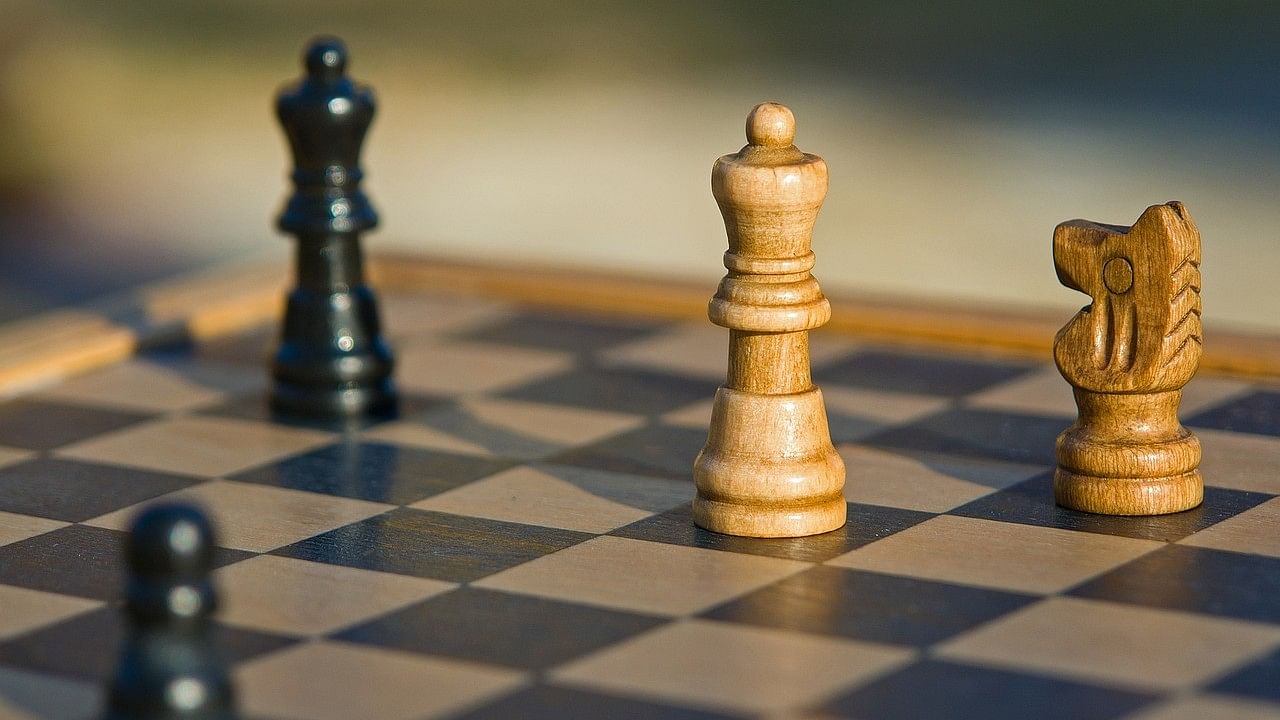
Representative image of a chess board.
Credit: Pixabay Photo
The air is still thick with euphoria. And why not? As India's sporting achievements go -- and they are few and far between -- the double-gold feat at the just-concluded 45th Chess Olympiad is up there among the best. Recall India's maiden Olympic gold at Amsterdam 1928. Rewind your memories to when Kapil Dev and Co were crowned at Lord's as the 60-over World Cup champions in 1983.
Or reminisce about Neeraj Chopra's golden moment at Tokyo. What the Indian men's and women's chess teams accomplished in Budapest on Sunday sit comfortably with the aforementioned exploits.
While the men's team, teaming with once-in-a-generation talent, was expected to improve upon its bronze-winning effort in the 2022 edition in Chennai, the hopes were a little subdued insofar as women were concerned, though they also had a bronze to show from the same event.
But against all odds, the women's team provided the icing on the cake by matching the men in winning the maiden gold of the Olympiad. And they did it without their No 1 player, Dronavalli Harika, who opted out of the event due to personal reasons.
The two teams just didn't win the gold but smashed the field en route to the top podium finish. If Viswanathan Anand showed the world that India was a force to reckon with in the game of 64 squares, the younger bunch is revolutionising chess like never before.
What's even more heartening is the fact that the average age of the men's team is less than 22 and that of the women is under 23. Amazingly enough, India's campaigns in both sections were powered by their younger members. Gukesh (18 years) and Erigaisi (21) remained unbeaten to claim individual gold medals as well.
Vantika Agarwal (21) and Divya Deshmukh (18) replicated the same in the women's section. The potential is unlimited and the possibilities are endless. India got their first Grandmaster in Anand in 1988, now there are 85 Indian Grandmasters, just four less than the fourth-placed America. Three of their players -- Arjun Erigaisi, Anand and D Gukesh -- are ranked among the top 10 in FIDE rankings.
And Gukesh will be challenging Chinese defending champion Liren Ding for the World title in November-December this year in Singapore. The chess scenario in the country has never looked better. India is a real chess power in the world now but care should be taken not to let this momentum slip away.
It's also about time corporate India looked at investing in the game. The players are young, talented and highly motivated. They have the potential to rule the game for a long time to come, but to sustain this interest there have to be substantial incentives for players.